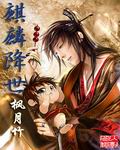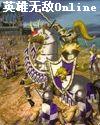The Library-第5章
按键盘上方向键 ← 或 → 可快速上下翻页,按键盘上的 Enter 键可回到本书目录页,按键盘上方向键 ↑ 可回到本页顶部!
————未阅读完?加入书签已便下次继续阅读!
of ordinary binding; nor theological folios and classic quartos; that the modern amateur desires。 He is content with but a few books of distinction and elegance; masterpieces of printing and binding; or relics of famous old collectors; of statesmen; philosophers; beautiful dead ladies; or; again; he buys illustrated books; or first editions of the modern classics。 No one; not the Duc d'Aumale; or M。 James Rothschild himself; with his 100 books worth 40;000 pounds; can possess very many copies of books which are inevitably rare。 Thus the adviser who would offer suggestions to the amateur; need scarcely write; like Naude and the old authorities; about the size and due position of the library。 He need hardly warn the builder to make the salle face the east; 〃because the eastern winds; being warm and dry of their nature; greatly temper the air; fortify the senses; make subtle the humours; purify the spirits; preserve a healthy disposition of the whole body; and; to say all in one word; are most wholesome and salubrious。〃 The east wind; like the fashion of book collecting; has altered in character a good deal since the days when Naude was librarian to Cardinal Mazarin。 One might as well repeat the learned Isidorus his counsels about the panels of green marble (that refreshes the eye); and Boethius his censures on library walls of ivory and glass; as fall back on the ancient ideas of librarians dead and gone。
The amateur; then; is the person we have in our eye; and especially the bibliophile who has but lately been bitten with this pleasant mania of collecting。 We would teach him how to arrange and keep his books orderly and in good case; and would tell him what to buy and what to avoid。 By the LIBRARY we do not understand a study where no one goes; and where the master of the house keeps his boots; an assortment of walkingsticks; the 〃Waverley Novels;〃 〃Pearson on the Creed;〃 〃Hume's Essays;〃 and a collection of sermons。 In; alas! too many English homes; the Library is no more than this; and each generation passes without adding a book; except now and then a Bradshaw or a railway novel; to the collection on the shelves。 The success; perhaps; of circulating libraries; or; it may be; the Aryan tendencies of our race; 〃which does not read; and lives in the open air;〃 have made books the rarest of possessions in many houses。 There are relics of the age before circulating libraries; there are fragments of the lettered store of some scholarly greatgrandfather; and these; with a few odd numbers of magazines; a few primers and manuals; some sermons and novels; make up the ordinary library of an English household。 But the amateur; whom we have in our thoughts; can never be satisfied with these monplace supplies。 He has a taste for books more or less rare; and for books neatly bound; in short; for books; in the fabrication of which ART has not been absent。 He loves to have his study; like Montaigne's; remote from the interruption of servants; wife; and children; a kind of shrine; where he may be at home with himself; with the illustrious dead; and with the genius of literature。 The room may look east; west; or south; provided that it be dry; warm; light; and airy。 Among the many enemies of books the first great foe is DAMP; and we must describe the necessary precautions to be taken against this peril。 We will suppose that the amateur keeps his ordinary working books; modern tomes; and all that serve him as literary tools; on open shelves。 These may reach the roof; if he has books to fill them; and it is only necessary to see that the back of the bookcases are slightly removed from contact with the walls。 The more precious and beautifully bound treasures will naturally be stored in a case with closelyfitting glassdoors。 {2} The shelves should be lined with velvet or chamois leather; that the delicate edges of the books may not suffer from contact with the wood。 A leather lining; fitted to the back of the case; will also help to keep out humidity。 Most writers remend that the bookcases should be made of wood close in the grain; such as wellseasoned oak; or; for smaller tabernacles of literature; of mahogany; satinwood lined with cedar; ebony; and so forth。 These closegrained woods are less easily perated by insects; and it is fancied that bookworms dislike the aromatic scents of cedar; sandal wood; and Russia leather。 There was once a bibliophile who said that a man could only love one book at a time; and the darling of the moment he used to carry about in a charming leather case。 Others; men of few books; preserve them in long boxes with glass fronts; which may be removed from place to place as readily as the household gods of Laban。 But the amateur who not only worships but reads books; needs larger receptacles; and in the open oak cases for modern authors; and for books with mon modern papers and bindings; in the closed armoire for books of rarity and price; he will find; we think; the most useful mode of arranging his treasures。 His shelves will decline in height from the lowest; where huge folios stand at case; to the top ranges; while Elzevirs repose on a level with the eye。 It is well that each upper shelf should have a leather fringe to keep the dust away。
As to the shape of the bookcases; and the furniture; and ornaments of the library; every amateur will please himself。 Perhaps the satinwood or mahogany tabernacles of rare books are best made after the model of what furnituredealers indifferently call the 〃Queen Anne〃 or the 〃Chippendale〃 style。 There is a pleasant quaintness in the carved architectural ornaments of the top; and the inlaid flowers of marquetry go well with the pretty florid editions of the last century; the books that were illustrated by Stothard and Gravelot。 Ebony suits theological tomes very well; especially when they are bound in white vellum。 As to furniture; people who can afford it will imitate the arrangements of Lucullus; in Mr。 Hill Burton's charming volume 〃The Bookhunter〃 (Blackwood; Edinburgh; 1862)。〃Everything is of perfect finish;the mahoganyrailed gallery; the tiny ladders; the broad winged lecterns; with leathern cushions on the edges to keep the wood from grazing the rich bindings; the books themselves; each shelf uniform with its facings; or rather backings; like welldressed lines at a review。〃 The late Sir William StirlingMaxwell; a famous bibliophile; invented a very nice library chair。 It is most fortable to sit on; and; as the top of the back is broad and flat; it can be used as a ladder of two high steps; when one wants to reach a book on a lofty shelf。 A kind of square revolving bookcase; an American invention; manufactured by Messrs。 Trubner; is useful to the working man of letters。 Made in oak; stained green; it is not unsightly。 As to ornaments; every man to his taste。 You may have a 〃pallid bust of Pallas〃 above your classical collection; or fill the niches in a shrine of old French light literature; pastoral and edy; with delicate shepherdesses in Chelsea china。 On such matters a modest writer; like Mr。 Jingle when Mr。 Pickwick ordered dinner; 〃will not presume to dictate。〃
Next to damp; dust and dirt are the chief enemies of books。 At short intervals; books and shelves ought to be dusted by the amateur himself。 Even Dr。 Johnson; who was careless of his person; and of volumes lent to him; was careful about the cleanliness of his own books。 Boswell found him one day with big gloves on his hands beating the dust out of his library; as was his custom。 There is nothing so hideous as a dirty thumbmark on a white page。 These marks are monly made; not because the reader has unwashed hands; but because the dust which settles on the top edge of books falls in; and is smudged when they are opened。 Gilttop edges should be smoothed with a handkerchief; and a small brush should be kept for brushing the tops of books with rough edges; before they are opened。 But it were well that all books had the top edge gilt。 There is no better preservative against dust。 Dust not only dirties books; it seems to supply what Mr。 Spencer would call a fitting environment for bookworms。 The works of bookworms speak for themselves; and are manifest to all。 How many a rare and valuable volume is spoiled by neat round holes drilled through cover and leaves! But as to the nature of your worm; authorities differ greatly。 The ancients knew this plague; of which Lucian speaks。 Mr。 Blades mentions a white bookworm; slain by the librarian of the Bodleian。 In Byzantium the black sort prevailed。 Evenus; the grammarian; wrote an epigram against the black bookworm (〃Anthol。 Pal。;〃 ix。 251):
Pest of the Muses; devourer of pages; in crannies that lurkest; Fruits of the Muses to taint; labour of learning to spoil; Wherefore; oh blackfleshed worm! wert thou born for the evil thou workest? Wherefore thine own foul form shap'st thou with envious toil?
The learned Mentzelius says he hath heard the bookworm crow like a cock unto his mate; and 〃I knew not;〃 says he; 〃whether some local fowl was clamouring or whether there was but a beating in mine ears。 Even at that moment; all uncertain as I was; I perceived; in the paper whereon I was writing; a little insect that ceased not to carol like very chanticleer; until; taking a magnifying glass; I assiduously observed him。 He is about the bigness of a mite; and carries a grey crest; and the head low; bowed over the bosom; as to his crowing noise; it es of his clashing his wings against each other with an incessant din。〃 Thus far Mentzelius; and more to the same purpose; as may be read in the 〃Memoirs of famous Foreign Academies〃 (Dijon; 175559; 13 vol。 in quarto)。 But; in our times; the learned Mr。 Blades having a desire to exhibit bookworms in the body to the Caxtonians at the Caxton celebration; could find few men that had so much as seen a bookworm; much less heard him utter his native woodnotes wild。 Yet; in his 〃Enemies of Books;〃 he describes some rare encounters with the worm。 Dirty books; damp books; dusty books; and books that the owner never opens; are most exposed to the enemy; and 〃the worm; the proud worm; is the conqueror still;〃 as a didactic poet sings; in an ode on man's mortality。 As entzelius; it may not be amiss to gi



![(Death Note同人)[DN同人]路过封面](http://www.667zw.com/cover/13/13229.gif)
![(love live同人)[绘希]瞳中佳人封面](http://www.667zw.com/cover/14/14128.gif)
![(综漫同人)[综]LINE!LINE!刑天游戏封面](http://www.667zw.com/cover/16/16450.jpg)
